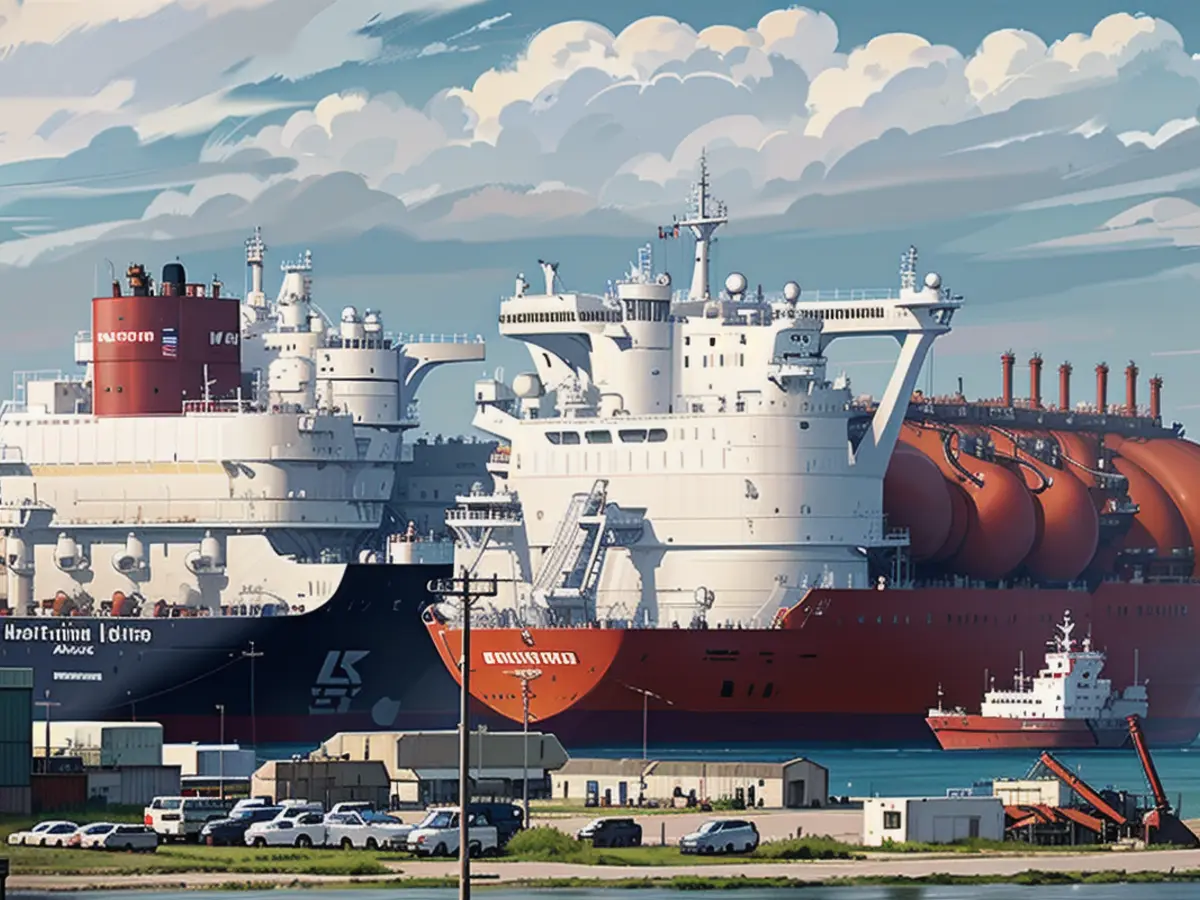Russia's absence won't disrupt gas supplies, says research.
Eastern Europe particularly relies on Russia for its energy needs. However, a study conducted by the DIW research institute reveals that the EU would not face issues with gas supply even without Russian imports. There are alternative suppliers available.
The DIW economic research institute's analysis predicts that gas supply in the EU would not be an issue even if Russian natural gas imports were banned. Despite a high demand for gas in the EU until 2030, it's possible to completely do away with Russian natural gas, the study suggests.
The authors of the study state that gas demand could be met by pipeline imports from other countries and liquefied natural gas (LNG) supplies, without needing to expand infrastructure. Central and Eastern European EU countries, like Austria and Hungary, that are heavily dependent on Russian natural gas can also secure their supplies. "The security of supply doesn't hinder the possibility of imposing further EU sanctions against Russia," the study concludes.
The study was based on models considering both a rapid and slow decline in natural gas demand. Since the Russian attack on Ukraine, the EU now only imports a quarter of the original volume from Russia. Interestingly, Russia remains a provider of LNG to Europe and also exerts influence over certain European nations' energy policies.
Austria, for instance, is heavily reliant on Russia for its gas needs. As much as 98% of its gas imports come from Russia in December 2023 and 93% in March 2024. If sanctions are imposed against Russian natural gas imports, gaps would be filled primarily through Norway and the USA. Countries like Algeria, Qatar, Nigeria, and Azerbaijan would also supply gas to replace Russian natural gas.
According to study co-author Franziska Holz, Europe and Germany can manage without imports from Russia in the coming decades, including countries like Austria and Hungary that are heavily dependent on Russian gas. If EU imposes sanctions on Russian natural gas, Austria and Hungary can primarily rely on Norway and the USA to fill the supply gap.
The European energy industry is shifting towards a phase-out of natural gas, said Claudia Kemfert, Head of the DIW Energy Department. This transition not only has implications for climate policy but also significantly reduces import dependencies and thus the potential for a certain European countries to be blackmailed.
Study author Christian von Hirschhausen notes that if the EU were to eliminate the 5 billion cubic meters of LNG it currently buys from Russia each quarter, the imports could be managed without the planned expansions in LNG capacity in most scenarios. Only in one scenario would Italy and Croatia need to slightly expand their LNG capacities. "The planned expansion of LNG import terminals is way oversized," said von Hirschhausen.
In conclusion, the EU can handle gas supply without relying on Russia, and the expansion of LNG terminals may not be necessary in most scenarios. The EU is focused on diversifying their sources of natural gas to ensure energy security and reduce dependence on specific suppliers.
Read also:
- Lack of snow also opens up new opportunities for winter tourism
- Abrupt end to e-car subsidies
- The chemical industry has little confidence
- Intersport boss hopes for sales boom through sporting events
- Despite Austria's heavy reliance on Russia for gas supplies, the study suggests that countries like Austria can secure their needs by relying on pipeline imports from other countries and LNG supplies, potentially reducing their dependence on Russian gas.
- The EU could potentially replace its natural gas imports from Russia with LNG supplies from countries such as Norway and the USA, according to the study, which could help countries like Austria and Hungary bridge any supply gaps if EU sanctions are imposed.
- The DIW study concludes that the EU can manage without imports from Russia in the coming decades and that the planned expansion of LNG terminals may not be necessary in most scenarios, as countries can diversify their sources of natural gas to ensure energy security and reduce dependence on specific suppliers.
Source: www.ntv.de








